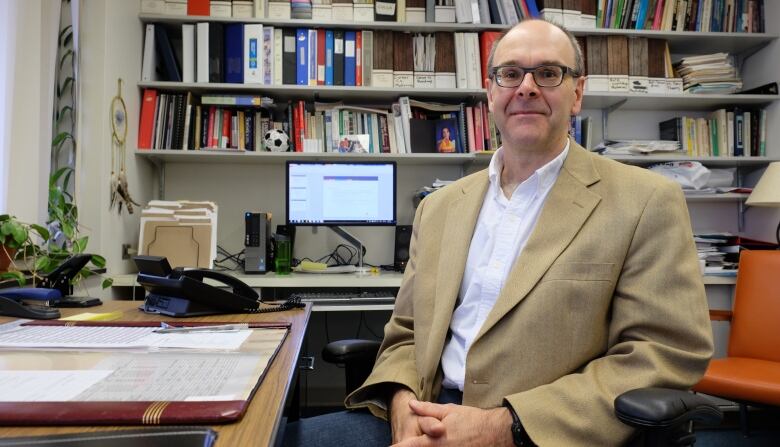Nearly 70% of university students battle loneliness during school year, survey says
National survey found students felt very lonely and so depressed that it was difficult to function

As university classes start up this week, officials are already working hard to stave off a major contributor to poor mental health among students loneliness.
A new study of Canadian university students found more than 66 per cent reported feeling "very lonely" in the past year.
And the problem was worse for female students, with nearly 70 per cent feeling very lonely at least once in the last year, compared with male students at 59 per cent.
More than 43,000 students were surveyed for the National College Health Assessment.
It found about 30 per cent of students "felt very lonely" within the last two weeks.
The study also found nearly half of the students surveyed felt debilitatingly depressed in the past year.
44 per cent said they "felt so depressed that it was difficult to function."
It's something counsellors on Winnipeg campuses are well aware of.
David Ness, director of student counselling at the University of Manitoba, said he expects to see studentsstruggling with loneliness come into the counselling centre every year.
"They're on a campus with 30,000 students, several thousand employees there's all these people around, but you still feel lonely," Ness said. "You have to have the individual skills to connect with someone."
He said it seems to be worse after the Thanksgiving break, and he thinks the increasing social anxiety ratein youth is a contributor. He also thinks electronic devices are contributing to students having difficulty making connections.
Ness recommends joining student groups or reaching out to counsellors or student mentors.
'You can feel really isolated'
At the University of Winnipeg, the student association is in the middle of a week of events to try to get students to connect before things get really busy.
"It's still a scary place for a lot of students. Your first year coming here, you can feel really isolated," said Kevin Settee, the student association's president. "You're in classrooms, then you have to go home and study, and you've got to do your research and write your papers, and usually a lot of that happens in isolation. It can get lonely."

Some Canadian universities are tackling loneliness directly and not just as a contributor to poor mental health among students. The University of Calgary has developed resources for lonely students to let them know they're not alone and where and how they can get help.
Jan Byrd, who directs the University of Winnipeg's wellness and student life program, said the university has first year students move into dorms a week early to help them adjust.
"We do quite a few things differently to welcome our first year students and try and alleviate that loneliness," said Byrd, pointing to activities like group movie nights, bowling, city tours and appointed peer mentors.
"We know that students are more likely to stay here and persist and do well in their studies if they have a network of supports, so we try and create many opportunities so people can make a network and make connections on campus so that things don't hit a crisis," she said.
The university doesn't want to "medicalize loneliness" because, Byrd said, it's a perfectly normal feeling, but "there are those students for whom things don't get better."
When that's the case, the university has psychiatrists and nurses on staff to help.
Ness, Settee and Byrd all recommended joining student groups as a way to stave off loneliness. The U of W had more than 70 groups last year, and the University of Manitoba tracks extracurriculars and puts them on students' transcripts as an incentive to participate.
Ness said counsellors can help students develop coping skills and figure out exactly what is causing them to feel bad.
Ness and Byrd said students should reach out before it reaches a crisis point.
In the past two years, the University of Winnipeg has increased counselling services on campus and changed the student health care program to include more money for mental health services.












_(720p).jpg)


 OFFICIAL HD MUSIC VIDEO.jpg)
.jpg)



























































































